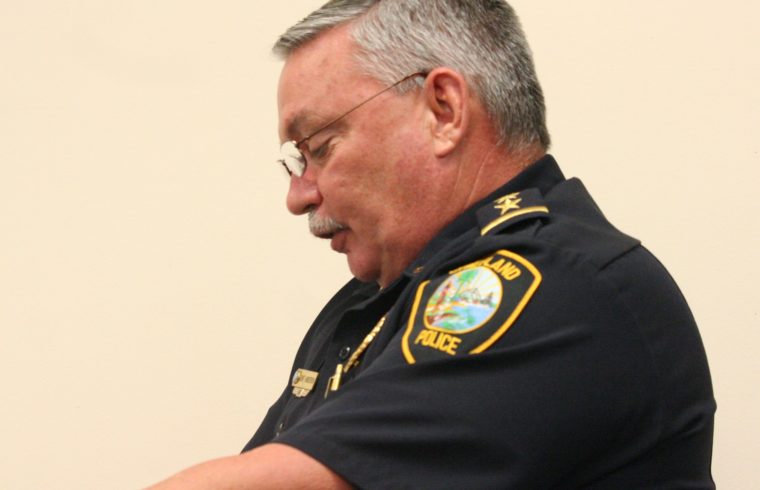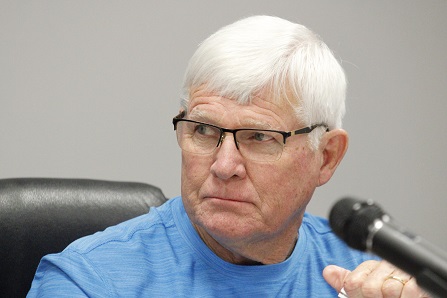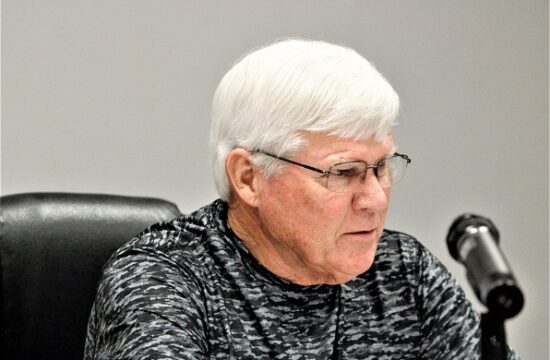Police Chief Scott Anderson Says Amended State Law Stops Pot Arrests
By Terry Witt – Spotlight Senior Reporter
An amended state law will make it extremely difficult to prosecute marijuana cases, according to a July 31 memo from State Attorney Bill Cervone.
Hemp and related hemp products having less than 3 percent THC are now legal in Florida, and since hemp and marijuana look and smell the same, police officers can’t distinguish between the two in the eyes of the courts.
Police Chief Scott Anderson said he ran into the amended law when a Chiefland motel called him to say there was suspicious drug activity in a motel room. Anderson said he was present when the door to the room was opened and the strong smell of pot wafted out.
He said he was unable to get a search warrant for the room. The motel owners later told the occupants to get out. The motel had the right to do that, but Anderson said police no longer can smell or see marijuana and have probable cause to make an arrest based on their observations.
The memo was made public by Anderson at the city commission meeting Monday.
“They’re not going to prosecute any marijuana cases,” Anderson said.
The law (FS 893.02(3)) was amended in the 2019 spring session of the legislature though few people in the justice system knew about it, according to Cervone’s memo.
Anderson was given authority by commissioners to purchase a new K-9 dog for his department that’s not trained to smell pot. The new K-9 will be able to smell other illegal drugs but not pot.
The police department will purchase the $8,900 dog through its law enforcement trust fund rather than with city tax dollars.
Anderson recently purchased a new K-9 but had to send it back because it was trained to sniff out a multitude of drugs including marijuana. He said a court could claim the dog accidentally smelled hemp when it alerted on a vehicle or a room containing pot.
“Legalization is coming next,” Anderson said.
Cervone’s memo was detailed and lengthy. He cautioned police officers that making a marijuana case stick wasn’t going to be easy with the amended law governing hemp on the books.
“Because hemp and cannabis are indistinguishable by sight or smell, that alone is no longer sufficient probable cause to go forward. Existing presumptive field tests are no longer valid in that they cannot address the required percentage of THC,” Cervone said. “While there are reports of new field test kits that might do so, those kits have not been certified for use and will not likely meet with court approval. A canine alert is not likely to be sufficient. What this means is that an officer must have more than experience and observation, or what many bulletins are referring to as an ‘odor plus’ standard to proceed.”
Cervone went on to say that officers from this point forward, if they hope to make a marijuana arrest, must be able to cite additional facts such as “related criminal activity, an admission, signs of deception such as nervousness or furtive movements, or any of the other myriad of circumstances that could suggest guilt,” but he couldn’t assure anyone at this time as to how the courts would rule on that.
“Because of the uncertainty of all of the above and the problems noted below, my recommendation is that if an officer can meet the odor plus standard and wishes to charge, that be done by sworn complaint and not arrest. I would also suggest the arrest option be limited to significant quantities of suspected cannabis or known drug traffickers,” Cervone said.
A sworn complaint gives the State Attorney the legal authority to review and charge if it is deemed a good case.
Cervone said amended law caught him by surprise.
“This change to the law was largely unvetted by any criminal justice committee in Tallahassee during the legislative session as it was run through agricultural committees. Few if any of us in the criminal justice field knew it had passed much less that it was even being considered. Those who did were apparently met with deaf ears when they raised concerns about the impact of hemp legalization. That changes nothing. Until and unless the legislature provides some assistance such as adequate funding for the required testing to quantify THC levels our hands are largely if not totally tied.”
He concluded that recreational marijuana remains illegal in Florida.
“What has changed has been our ability to meet our burden of proof,” Cervone said.
—–
City of Chiefland Regular Meeting August 12, 2019; Posted August 12, 2019













